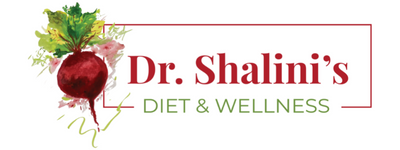10 Lifestyle Tips To Keep Your Heart Healthy
KEEPING THE MODIFIABLE RISK FACTORS in control AND ADOPTING A HEALTHIER LIFESTYLE CAN MAKE A BIG DIFFERENCE WHEN IT COMES TO CARDIAC DISEASES. READ ON TO KNOW THE 10 STEPS TOWARDS A HEALTHY HEART
Lifestyle changes characterised by rising incomes, sedentary jobs, and high levels of stress are some of the factors that have contributed to the high incidence of cardiovascular disease. In India, cardiovascular diseases are responsible for one-third of all deaths. Controlling the risk factors and adopting a healthier lifestyle can make a big difference when it comes to this disease.
1.) EAT SENSIBLY: Avoid saturated fats and trans-fats as they raise the bad cholesterol level (LDL). Check the labels of food items before consuming them and avoid anything that is “partially hydrogenated” as this is a clear indicator that it contains trans-fat. Cut out red meat from your diet and add fresh fruits and vegetables instead. However, not all fats are bad for the body, monounsaturated and polyunsaturated fats include Omega-3 and Omega-6 are essential for good health and help protect against the risk of heart attacks and strokes. Food items that contain good fats include almonds, walnut, avocado, fish, flax seeds, chia, sunflower seeds etc.
2). CHOOSE THE RIGHT OIL: Cooking oil needs to be chosen carefully to maintain heart health and optimum levels of cholesterol in the body.I advise using oils or fats which are least processed and are indigenous like desi ghee,mustard oil, coconut oil alongwith Olive oil ( if you dislike the strong taste of other locally produced oils). But whichever fat medium you use, the quantity needs to be controlled. Also, take care that Olive oil should not be the Extra virgin variant as it should not be heated at high temperatures ( as is usually the case with Indian Style Cooking ) . Do not reuse your cooking oil as this can result in the creation of trans-fat.
3.) SUGAR IS YOUR ENEMY No.1: Avoid dietary sugar and simple carbohydrates as far as possible. This includes white and brown sugar, jaggery, honey, maple syrup, corn syrup, sugar laden beverages, fruit juices, refined flour, white rice, white bread, etc.
4.) EAT MORE FIBRE : A high Fibre Diet is heart protective .Include more of whole cereal grains( ragi, oats,millets,bajra,jowar,barley,whole wheat,whole pulses, lots of fresh fruits and vegetables). Avoid peeling skin wherever possible but do take care that the skin is washed properly.
5.) WALK / EXERCISE : Exercise helps protect against heart disease and other associated problems. But besides regular exercise every extra step you take during the day helps prevent disease. Try doing at least 40 minutes of moderate physical activity (such as walking) in your daily life. Exercise burns the excess fats in the body and helps control the blood cholesterol. It will also reduce stress and normalise the pulse rate.
6.)KEEP BODY WEIGHT IN CONTROL: Studies have shown that exercise programs and healthy eating lead to improved health parameters, even in the absence of weight loss. But maintaining proper weight for height always helps. Body weight is directly related to eating behaviours and the type of food being consumed. Depending on your height and age, it’s advisable to figure out your ideal weight and then make an effort to achieve or maintain that. Its advisable to lose weight under proper professional guidance so that you do not subject your body to an improper dietary regime which is detrimental to your heart and other organs. You can consult here for a heart healthy weight loss program.
7.) DESTRESS / RELAX: Stress has several negative effects on our body, and should be kept under control. Take up a hobby that helps you relax. It could be something as simple as cooking or gardening but make sure you take some time out for yourself. Yoga & Meditation certainly help relax. Regular walk ,listening to music, praying, meeting people, etc also are stress busters.
8.) KEEP Blood Pressure NORMAL: Blood pressure is an important measure for prevention of heart attacks. Your heart has to work harder to push blood through your body when your blood pressure is high. This causes your heart to enlarge and can speed up atherosclerosis (deposition of fats inside the arteries). In case you suffer from this condition, make sure you take your medications on time and regularly without a miss. Do not stop or reduce medication abruptly without consulting your physician
Avoiding excessive consumption of sodium can also help reduce high blood pressure.
9.) Keep Blood Sugar under Control- If you have diabetes, keep the blood sugar under ‘tight control’. Remember, physical activity is the best way to burn off excess sugar in the blood. Those with diabetes are more prone to heart disease. You can seek help here for maintaining blood glucose levels alongwith maintaining good heart health.
Post menopausal women need to be particularly careful and can take guidance with tailored diet plans
10.) ABSTAIN FROM SMOKING: A smoker’s risk of having a heart attack is more than twice that of a non-smoker. Smoking speed up the development of plaque in the arteries. It also reduces the level of the good cholesterol (known as HDL cholesterol )


